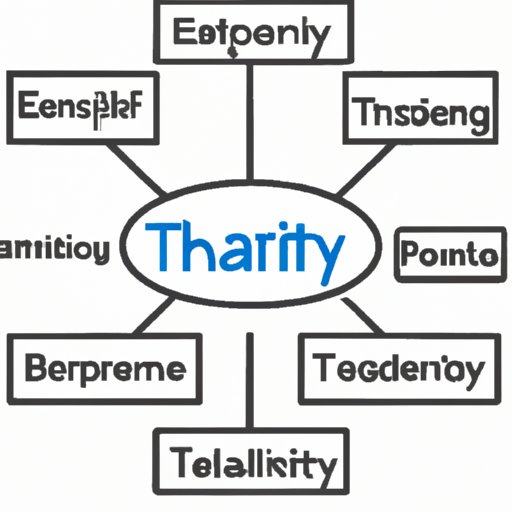Introduction
The trait theory of leadership is a well-known theory that is used to assess and evaluate leaders in various fields. This theory suggests that certain traits can be identified in successful leaders, and that these attributes can be used to predict the effectiveness of leadership. By understanding the traits associated with successful leaders, organizations can select and develop leaders who are best suited for the job.
Analyzing the Trait Theory of Leadership
When examining the trait theory of leadership, it is important to understand the characteristics of successful leaders. Generally speaking, successful leaders possess strong communication skills, are decisive, have a vision for the future, and demonstrate integrity and trustworthiness. They also possess the ability to motivate others, manage conflict, and make difficult decisions. These qualities are essential for any leader to be successful.
In addition to these broad characteristics, there are several core qualities that are essential for an effective leader. These include intelligence, self-confidence, emotional stability, motivation, and empathy. Leaders must also be able to think strategically, delegate effectively, and build relationships. All of these qualities are necessary for any leader to be successful in their role.

Examining the Relationship between Personality Traits and Leadership
The origin of the trait theory of leadership lies in the connection between personality traits and leadership. Research has shown that certain personality traits are more closely linked to successful leadership than others. For example, research has found that extroversion, conscientiousness, agreeableness, and openness are all associated with successful leadership. Additionally, research has indicated that these traits are closely related to the core qualities of an effective leader.
It is also important to note that the trait theory of leadership is different from other leadership theories. For example, transformational leadership focuses on inspiring followers to achieve greater levels of performance, while situational leadership looks at adapting one’s style based on the situation. The trait theory of leadership, on the other hand, focuses on identifying the traits of successful leaders and how these traits can be used to select and develop leaders.

Identifying the Benefits of Practicing the Trait Theory of Leadership
There are several benefits associated with practicing the trait theory of leadership. In the short-term, organizations can use this theory to identify potential leaders and ensure that they select the right individuals for the job. Additionally, by understanding the traits associated with successful leaders, organizations can create development plans to help current leaders become more effective. In the long-term, organizations can use the trait theory of leadership to create a culture of successful leadership, which can have a positive impact on the organization as a whole.
Conclusion
The trait theory of leadership is a well-known theory that is used to assess and evaluate leaders in various fields. This theory suggests that certain traits can be identified in successful leaders, and that these attributes can be used to predict the effectiveness of leadership. By understanding the traits associated with successful leaders, organizations can select and develop leaders who are best suited for the job. Furthermore, organizations can benefit from the trait theory of leadership by creating a culture of successful leadership in the long-term.
In conclusion, the trait theory of leadership is an important concept to understand when assessing and developing leaders. Organizations should strive to understand the traits associated with successful leaders and use them to select and develop leaders who are best suited for the job. Further research is needed to explore the relationship between personality traits and leadership and its implications for organizations.
(Note: Is this article not meeting your expectations? Do you have knowledge or insights to share? Unlock new opportunities and expand your reach by joining our authors team. Click Registration to join us and share your expertise with our readers.)
